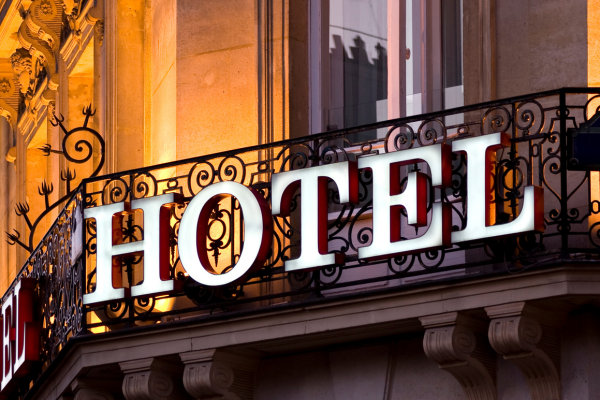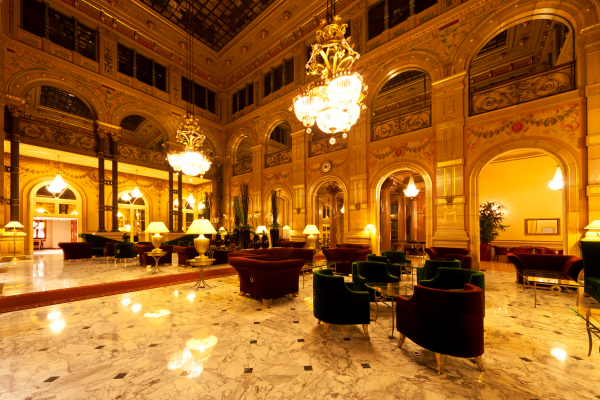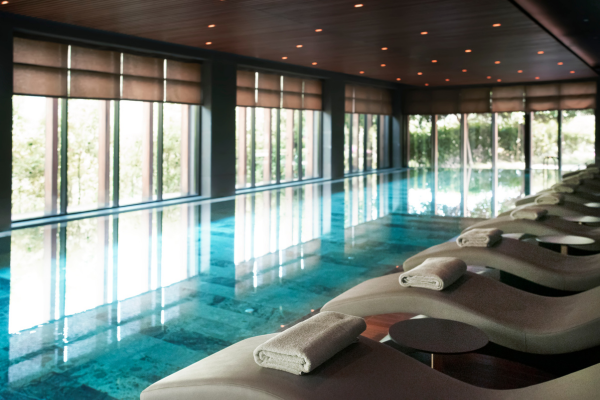The Impact of Energy Costs on Hotel Pricing and Guest Experience
By Switch365 - (2024-11-19)

The Effect of Energy Costs on Hotels
Energy prices have reached their highest point for 2024 and for hotels, this is a major headache. From warm rooms to hot showers, every corner of a hotel relies on energy, so rising costs aren’t easy to absorb. The big question is, how do hotels deal with these costs without sacrificing guests’ expectations?
Here’s a closer look at how energy prices are shaping hotel rates and guest experience and what the industry is doing to handle the impact.
Higher Energy Costs Result in Tighter Margins
Hotels heavily rely on electrical infrastructure, which is all-important for the overall experience but as energy prices keep climbing, hotels have to cover these expenses somehow. Raising room rates to cover these costs might seem like the straightforward answer, but it’s not always a great option. Higher rates could turn away guests, especially as more people are watching their budgets closely.
Instead of simply passing on the cost to guests, many hotels are looking into ways to reduce energy waste. Energy audits are a common first step. These audits assist in identifying high-energy-use sectors, such as lighting and heating. Hotels can then make targeted modifications to reduce their usage, such as upgrading to LED lighting, installing smart controls for heating and cooling, and reconsidering how common spaces are illuminated. It may sound simple, but these changes add up and help hotels stay competitive without constantly raising prices.
Energy-Efficient Upgrades
Many hotels Smart thermostats, energy-efficient windows, and LED lighting can all help reduce energy consumption significantly. Some hotels are even considering alternative energy sources such as solar panels or purchasing green energy credits to reduce their carbon footprint. These upgrades might cost upfront, but they often pay off over time, not just in lower bills but in appealing to today’s eco-conscious guests.

Guests who care about sustainability often appreciate staying in places that share those values. There is a growing market of guests who want their trips to be more eco-friendly and hotels making these energy-efficient moves can tap into that demand. It’s more than just a nice touch; it's becoming a significant selling feature for some guests.
Adjusting Amenities and Services
Another way hotels are addressing energy expenses is by altering facilities. This may include turning off pool heating during off-peak hours, adjusting spa hours, or even moving to flexible housekeeping schedules to save money on laundry. The challenge here is to strike a balance, ensuring that these modifications assist in decreasing expenses while without significantly harming visitors' experiences.
Understanding the "why" behind these changes might be helpful to many guests. Hotels that communicate their efforts to guests often find they’re popular, especially when framed as eco-friendly initiatives.
Dynamic Pricing as a Strategy
With energy prices affecting total budgets, many hotels are implementing dynamic pricing to adjust. This strategy allows them to alter hotel rates in line with demand, allowing them to better balance costs. Hotels may charge somewhat more during peak periods when energy consumption and operating expenses are high, but off-peak periods provide visitors with more affordable prices.

By tailoring prices to demand, hotels avoid the need for broad price hikes across all seasons. This flexibility also helps customers, since they may find cheaper rates during calmer hours, while hotels can keep their energy costs under control. Dynamic pricing creates a fair way to manage rising costs without sacrificing value for guests.
Behind-the-Scenes Adjustments
Not all energy-saving efforts are visible to guests. Many hotels are making behind-the-scenes changes that help manage costs without directly impacting the guest experience. Simple steps like scheduling maintenance around occupancy, lowering heating or cooling in unoccupied spaces or using energy-efficient appliances in back-office areas are small adjustments that add up over time.
Hotels are also investing in energy management systems that automatically change settings based on room occupancy. For example, the system might lower the heat when rooms are empty or turn off lights in unused spaces. These steps help hotels control their energy use efficiently and keep costs down without sacrificing comfort.
Partnering with Energy Consultants
Working with an energy consultant like Switch365 helps hotels find the right balance between managing rising energy costs and keeping the guest experience intact. Switch365 can secure better energy rates and provide strategies for reducing energy use, which helps hotels avoid across-the-board price hikes that might deter guests. By taking a smarter approach to energy costs, hotels can maintain competitive pricing, especially during peak seasons, without compromising on comfort or amenities.

With Switch365’s support, hotels are able to create a cost-effective, guest-friendly experience that reflects their commitment to both value and sustainability.
Conclusion
Rising energy prices are a problem for hotels, but there are methods to adjust while prioritising guest experience. Hotels may keep expenses under control without compromising what customers value most by investing in energy-efficient enhancements, smart service modifications, and open communication. Partnering with experts like Switch365 is a crucial step in this process. Switch365 not only helps hotels secure the best energy rates but also provides tailored advice on reducing consumption and adopting sustainable practices. With Switch365's assistance, hotels can plan effectively for the future, creating a guest experience that’s both cost-efficient and environmentally friendly. Together, thoughtful energy management and sustainable practices are paving the way for a better future, one that benefits both visitors and the environment.

